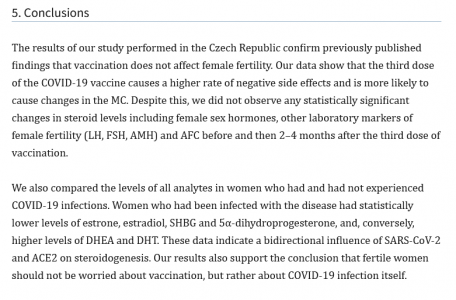StarSong
Awkward is my Superpower
- Location
- Los Angeles Suburbs
I've never gotten antibiotics to combat viruses - only for bacterial infections like UTIs, strep, ear infections, etc.
I gave your post a "like", but I found your experience very different from mine. Anytime I've had to take an extended round of antibiotics, that's when I got Candida, then have to apply antifungal (Nystatin). Maybe some of us have varied reactions.I've had bouts of Candida before that are supposed to be treated with antifungals, however if I had a scrip for antibiotics for something else, it would wipe out the Candida better. Sometimes I think there's things they aren't telling us.
Maye you're thinking of Penicillin. My family doctor always prescribed Erythromycin for viruses. It always worked and I still use it for that if necessary.
When I was young, many times my doctors did the same thing... it's rarely done these days for whatever reasons... perhaps silly (to me anyway) ...Maye you're thinking of Penicillin. My family doctor always prescribed Erythromycin for viruses. It always worked and I still use it for that if necessary.
In some cases, yes. Less so for Covid now, it seems. I get vacc'd to prevent more serious levels of illness should I contract Covid. Like the pneumonia, flu and shingles vaccines, these are more about self protection.The trouble is, unless you are a hermit living alone on a desert island, your decision to be vaccinated (or not) against a deadly disease can potentially affect everyone with whom you come in contact.
Exactly.I've never gotten antibiotics to combat viruses - only for bacterial infections like UTIs, strep, ear infections, etc.
. I'm not sure but I think it is possible that a different antiviral might be needed for different viruses. Vaccination is the first line of defence for deadly viruses.
Antibiotics should be used sparingly to prevent bacteria adapting and mutating.
I was not familiar with predatory journals until I researched your source."A new study?"
I read the International Journal of Preventative Medicine study. The above is a mischaracterization of its findings and conclusions."A new study?"
Indeed. The Czech "study" is sheer nonsense.I was not familiar with predatory journals until I researched your source.
The fact that it's sheer nonsense is neither here nor there to some. As long as it fits their narrative, they're going to blindly believe it as fact.I read the International Journal of Preventative Medicine study. The above is a mischaracterization of its findings and conclusions.
COVID-19 Vaccination and Cardiovascular Events: A... : International Journal of Preventive Medicine
I found none of the statistics cited in @Tazx's post above. None. No 711%, 284%, or other supposed statistics. None.
In fact, it states:
"Overall, our study contributes to the existing literature by employing a comprehensive analysis approach and emphasizing controlled observational studies. While acknowledging potential side effects, our findings support the overall safety of the COVID-19 vaccine concerning cardiovascular complications such as myocardial infarction, stroke, and arrhythmia. However, it is crucial to note that ongoing surveillance and research are essential to continually monitor the safety and efficacy profiles of vaccines, including their potential cardiovascular effects, particularly as new variants emerge and vaccination strategies evolve. This underscores the importance of robust and continuous post-marketing surveillance systems to promptly identify and address any emerging safety concerns associated with vaccines."
Indeed. The Czech "study" is sheer nonsense.
I read the International Journal of Preventative Medicine study. The above is a mischaracterization of its findings and conclusions.
found none of the statistics cited in @Tazx's post above. None. No 711%, 284%, or other supposed statistics. None.

I think the answer is that both bacteria and fungal organisms inhabit the moist spaces of the human body. Not all microbes are a pathogens. Wipe out all the bacteria, including the benign kind, and something else will multiply quickly to fill the empty space. Using this principle, it is possible that antibiotics can allow fungal infections to flare up.I gave your post a "like", but I found your experience very different from mine. Anytime I've had to take an extended round of antibiotics, that's when I got Candida, then have to apply antifungal (Nystatin). Maybe some of us have varied reactions.
Czech study is here;@Tazx , could you please cite the actual name of the article and the date of the journal, etc. so I can locate it and read it? Thanks so much.
